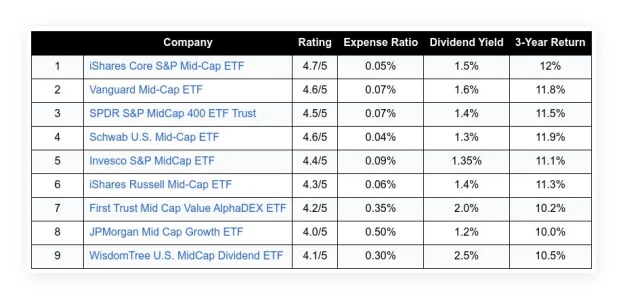Many of us have the fantasy of retiring young, of having the financial freedom to choose when and for whom we work. To make this dream a reality, though, you’ll have to make certain financial moves to ensure a reliable income later in life. For most people, early retirement means stopping work in your 50s, 40s, or, sometimes, even earlier. If that sounds like the ideal situation for you, this article is for you.
You may have heard of the FIRE movement, which stands for Financial Independence, Retire Early. Importantly, retiring young doesn’t necessarily mean never working again for the rest of your life. Many people who retire early choose to start businesses later in life, pursue creative work they didn’t have the financial freedom to dedicate themselves to earlier, or travel around the world.
In this article, we’ll explore the strategies you’ll want to consider when planning for early retirement.
Table of Contents
ToggleAdjust Your Spending
Arguably the most important step to retiring early is minimizing how much money you spend. In order to funnel more money into savings, you’ll want to live as frugally as possible. This could involve moving into a smaller apartment, eschewing eating out at restaurants, canceling streaming services, giving up alcohol, cigarettes, or other “vice habits.”
For young people planning to retire at the traditional age, making a budget and cutting down spending is a smart savings move. For you – someone trying to retire in their 30s or 40s – it’s essential. And when we say cut, we mean serious budget cuts.
Many people trying to retire young try to live on less than half of their income, putting the rest into retirement savings. There are two ways to accomplish this: spending less or earning more.
The former requires a certain level of asceticism and self-denial. You’ll have to start turning down friends asking you to go out to bars every weekend or accompany them without ordering drinks or food. The latter is usually the more enticing option, as it doesn’t require you to compromise your lifestyle to save adequately.
Making more money could mean taking on additional work, moonlighting, trying to win the lottery (though we don’t recommend this strategy), or trying to make your investments earn more.
Either way, you’ll want to adjust yourself to less expensive spending habits. Enjoying early retirement involves protecting the money you’ve been saving up. You probably won’t be able to sustainably transition from a more austere life in your 30s to a life of excessive spending in your 40s and beyond.
Make a Savings Goal
Again, this step is absolutely essential for people looking to retire early. In order to properly plan for retirement, you’ll need to have a good idea of how much money you’ll be spending every year.
You may have heard of the 80% rule. It argues that in order to maintain their standard of living, people need to earn an annual income that’s roughly 80% of their pre-retirement income once they’ve stopped working. For example, if you earn $100,000 per year, you’ll want to make $80,000 per year after retiring (assuming you intend to keep your standard of living similar).
Another potential rule that could guide your process of making a savings goal is the 4% rule. This rule holds that if you only withdraw 4% of your total retirement savings each year to pay for expenses, your money should hopefully last longer than you need it to. The simple way to calculate your “number” using this rule is to multiply your desired annual income by 25.
For example, if you think you need $2,000 to live each month post-retirement, that’s $24,000 per year. Using the 4% rule, that would suggest you need $600,000 saved up before you retire.
Once you have an idea of how much annual income you’ll need after retirement, it’ll be easier for you to calculate how much you need to earn through your investments or additional work you take on post-retirement.
Figure Out How Much You’ll Earn From Fixed Sources
Social Security is a government program that takes taxes from workers and distributes them to disabled workers, retired workers over age 62, and relatives of deceased workers. If you’re planning to retire in your 30s, planning for Social Security benefits in your annual budget may not be that essential, as the benefit amount will be low.
Let’s briefly discuss the details of how Social Security works. Most people who earn Social Security are retired workers. The minimum age you can start earning benefits is 62, but if you wait until your FRA, or full retirement age (66 or 67 years old), up to the age of 70 you can maximize your benefits. The later you file for Social Security – up to age 70 – the better.
In order to qualify for Social Security, you need to hit 40 credits. You can earn up to four credits per year, so you need to work a minimum of 10 years to qualify. In 2023, a credit was the equivalent of $1,640 in earned income.
Your benefit amount once you retire will be dependent on your average indexed monthly earnings (AIME) over your 35 highest earning years. Every year under 35 you don’t work, the Social Security Administration will count your annual income as $0, pushing down your AIME and future benefit amount.
For example, let’s say you work 10 years – the minimum amount to qualify for Social Security benefits – retire, and don’t earn any income for the rest of your life. The 25 years of no income will decrease your monthly benefit, so you’d plan for it to be a minimal source of income once you file.
If you work for longer, though, taking Social Security benefits into account may be vital to calculating how much annual income you’ll receive post-retirement. If you earn pensions or annuities, you’ll want to factor those into your calculations of income from fixed sources.
Plan for the Unexpected
It’s difficult to plan for how things like healthcare needs will impact your money as you get older. When estimating how much money you’ll need to earn each year to live comfortably, it can be difficult to take into account what your future healthcare costs will be.
Having some wiggle room is usually a good idea. If you have a partner who gets health insurance through their work, and they plan on working past your retirement age, you may want to talk to them about joining their plan once you retire.
Planning for taxes is also a hitch in many people’s early retirement plans. Look into the tax protocols for your retirement savings plan. Some 401(k)s, for example, have minimum age requirements for when you can take qualified distributions.
Make an Investment Plan
Consider hiring a financial advisor for this step, as it might be a great help when deciding which investments will benefit your portfolio and which are too risky. Your asset mix changes naturally as you near retirement age, but if you’re trying to build a lot of money quickly, it may behoove you to take slightly bigger investment risks.
A certificate of deposit is a reliable way of growing your wealth, but putting money into the stock market for a more significant amount of time can give you a greater return. There are many ways to invest your money and no single path we can recommend for growing your wealth quickly. Talking to an expert is likely the wisest course of action for this step.
Stick to your Plan
Obviously, circumstances change. If you find yourself behind on your savings goals, unable to cut your budget in a significant enough way to make much progress, or simply too stressed to enjoy these money-growing techniques, you may want to readjust your expectations of when you’ll retire. We all want to be as free as possible and have as much financial independence as we can, but there are many different roads that lead to similar destinations.
Retiring early takes a lot of foresight and planning. The initiative is probably the biggest hurdle that stands between you and actually reaching your goal. Cutting down on spending takes a level of discipline it can take a long time to cultivate. Taking on a second job may not be physically or emotionally feasible for you.
However, if you’re able to commit to certain lifestyle choices, talk to a financial advisor to plan an investment strategy, and make plans for healthcare demands later in life, early retirement can make your future life more relaxed, more independent, and maybe, more meaningful.
There are no guarantees, though, and no single path you have to follow.
The Bottom Line
If you’re interested in early retirement, you’ll want to take certain steps to make sure you have enough money to last you a long time. Some of the first steps you’ll want to take include budgeting and taking stock of where you’re at in the present. Set future goals for yourself, and look into what you can expect to earn from fixed sources of income, like Social Security or pensions.
Early retirement can give you more time to pursue things you’re passionate about. It can allow you to work when you want to work and relax when you want to relax. You may choose to retire, travel for a few years, and then take on a second job unexpectedly. There’s no path you have to follow, nor a path that will guarantee financial stability. Savvy investing, planning, and flexibility are among the greatest assets for someone looking to retire early.
















